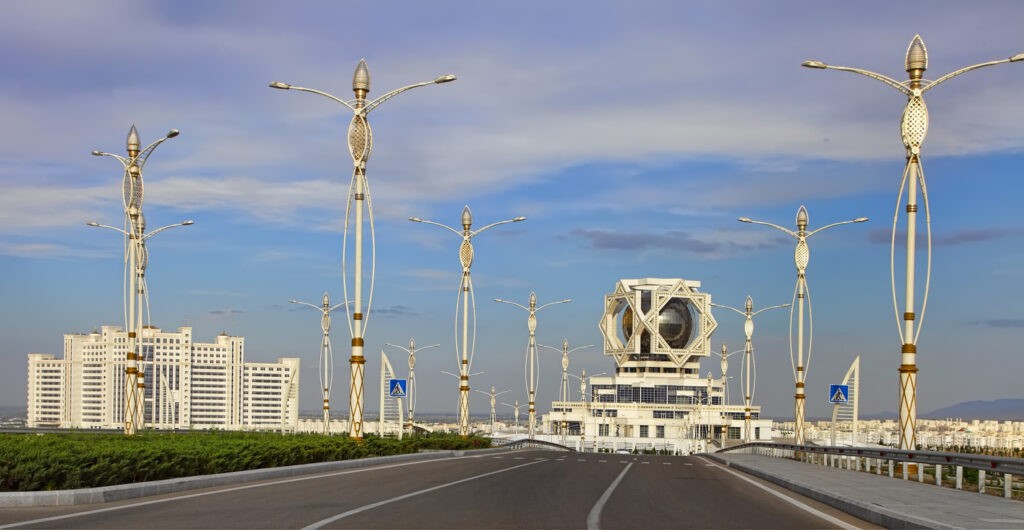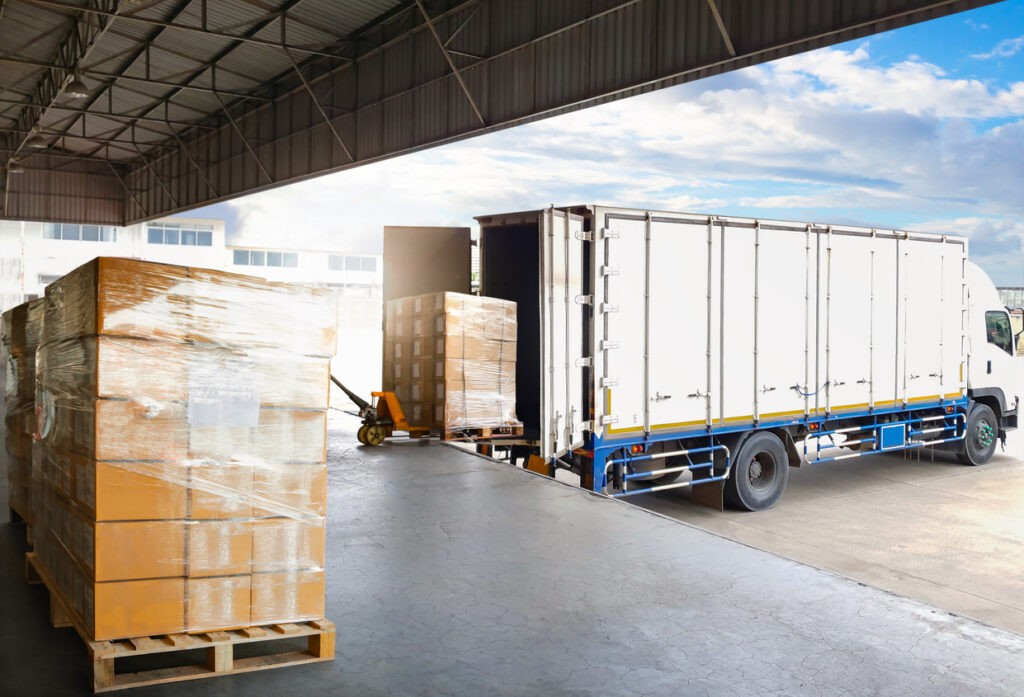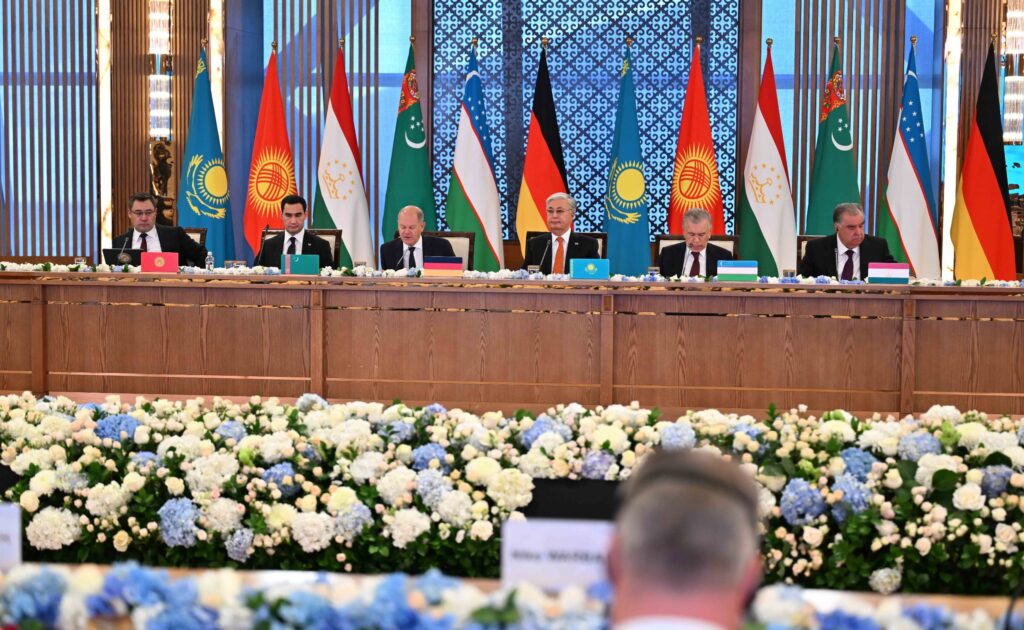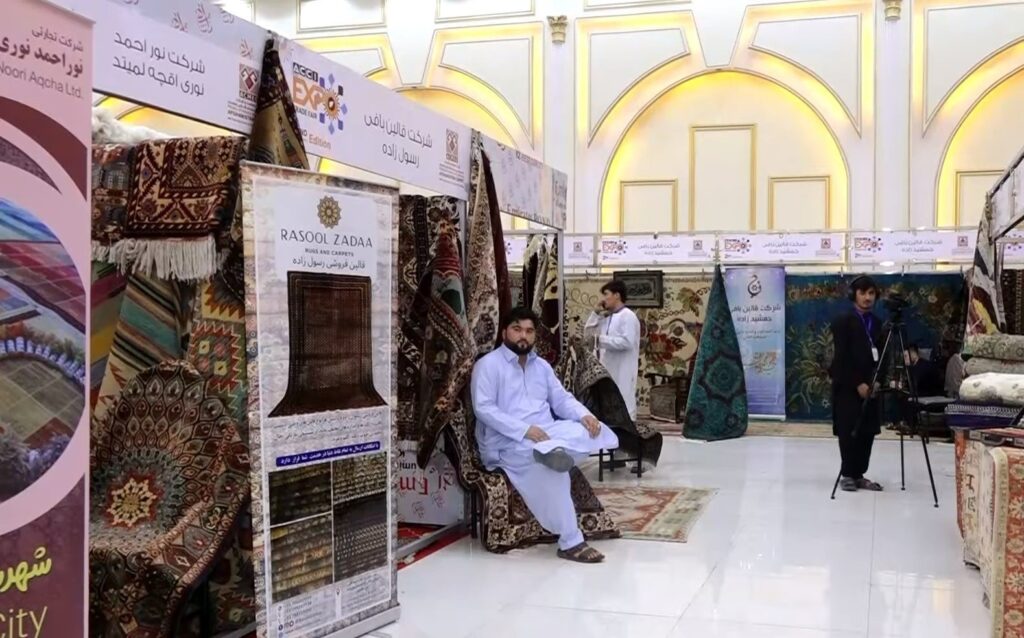BISHKEK (TCA) — The Publisher’s note: Throughout the 19th and 20th centuries, Central Asia was the scene of intense geopolitical struggle and the Great Game between the British and Russian Empires, and later between the Soviet Union and the West, over Afghanistan and neighboring territories. Into the 21st century, Central Asia has become the area of a renewed geopolitical interest, dubbed the New Great Game, largely based on the region’s hydrocarbon and mineral wealth. On top of that, the region now is perhaps the most important node in the implementation of China’s One Belt, One Road initiative through which Beijing aims to get direct access to Western markets. Every week thousands of news appears in the world’s printed and online media and many of them may escape the attention of busy readers. At The Times of Central Asia, we strongly believe that more information can better contribute to peaceful development and better knowledge of this unique region. So we are presenting this Weekly Digest which compiles what other media have reported on Central Asia over the past week.
KAZAKHSTAN
Latinisation of the Kazakh alphabet
The Kazakh transition to a Latin script comes at a time when integration with Moscow appears high on the agenda
Dec 3 — ““The future of Kazakh people lies in the fluent use of Kazakh, Russian and English languages”. This statement by former President of Kazakhstan Nursultan Nazarbayev, summarises the nuance for the meaning of Kazakh Latinisation. Official authorities in Russia have reacted by stating their understanding and respect for such a decision of a sovereign state. Whereas the more popular reactions from commentators in Russia were loaded with anger and nationalistic sentiments. Some Western analysts immediately interpreted this decision as a change in East-West relations and Kazakhstan becoming more Western. Neither is fully true. The answer for the right direction lies in the statement above.” READ MORE: https://neweasterneurope.eu/2019/12/03/latinisation-of-the-kazakh-alphabet/
Kazakhstan: Reaching Out to Central Asian Neighbours
Despite its regional outreach, Kazakhstan’s diplomatic priority will remain Russia, China, and Europe
Dec 4 — “Leaders of the resource-rich Central Asian region have the propensity to remain in power until mortality dictates otherwise. Much like the UK and Brexit, however, few wanted to see Central Asia’s longest reigning ruler, Kazakhstan’s septuagenarian president Nursultan Nazarbayev, crash out without a deal.” READ MORE: https://www.chathamhouse.org/expert/comment/kazakhstan-reaching-out-central-asian-neighbours#
Kazakh strategist: The EU is a precious, but undervalued partner
EURACTIV’s interview with Sanat Kushkumbayev, a prominent foreign policy analyst, about Kazakhstan’s diplomatic and geopolitical efforts, including its relations with China and the EU
Dec 5 — “Is it possible to compare the situation in Ukraine and in Kazakhstan, almost three decades after both countries’ independence from the USSR? It is not by chance that at the conference we both attended it was said that in a transition period it is very important to have a long mandate to carry out reforms. Kazakhstan adopted the presidential model and long-termism. Short-termism and a big role for Parliament doesn’t help, maybe this was the issue in Ukraine, and the democratic process can also often bring about populism. This is especially true when unpopular decisions need to be taken. Maybe in Central Europe, the parliamentary model worked, but in the post-Soviet space, Ukraine, Moldova, it didn’t.” READ MORE: https://www.euractiv.com/section/china/interview/kazakh-strategist-the-eu-is-a-precious-but-undervalued-partner/
One Third of Kazakhstan Schools Have Outdoor Toilets Only
Until 2021, the administrations of cities and regions of Kazakhstan should totally eliminate outdoor school toilets and build them inside educational institutions. This decision was made after a schoolgirl was raped in an outdoor toilet
Dec 5 — “Kazakhstan is a country that seeks to become a very serious tourism player on the global map. Yet, the country has only two toilets that meet global standards. The study was conducted by representatives of the Ministry of Culture and Sport, according to vice-head of the agency, Yerlan Kozhagapanov. At the recent meeting of the interagency committee on protection of children’s rights, it was reported that 2,352 schools with outdoor toilets are operating in Kazakhstan.” READ MORE: https://cabar.asia/en/one-third-of-kazakhstan-schools-have-outdoor-toilets-only/
KYRGYZSTAN
“It’s Contrary to our Mindset.” Scandal over Exhibition Unfolds in Kyrgyzstan
In Bishkek, female activists decided to draw public attention to the issue of women’s rights violation using contemporary art. Other activists – supporters of the national culture and traditions – opposed it and called to close down the exhibition
Dec 3 — “On November 27, the first exhibition opened in Kyrgyzstan that united the idea of biennale (festival of contemporary art) and feminism. The feminnale called “Foster Mothers. Economic Freedom. Women” reveals the idea of women’s freedom in Kyrgyzstan. According to the organisers, the exhibition will be held for 17 days – equal to the number of girls who died in fire at a Moscow printing house in 2016. 14 of the deceased were from Kyrgyzstan. The feminnale is threatened to be closed down just 5 days after its opening, according to organisers.” READ MORE: https://cabar.asia/en/it-s-contrary-to-our-mindset-scandal-over-exhibition-unfolds-in-kyrgyzstan/
Kyrgyzstan: Blogger Faces Incitement Charges
A Kyrgyzstan blogger was detained and has now been placed under house arrest over posts on corruption
Dec 6 — “A blogger in Kyrgyzstan who wrote about corruption on social media is facing charges of inter-regional incitement, Human Rights Watch said today. The blogger, Aftandil Zhorobekov, was detained on November 24, 2019 by Kyrgyzstan’s State Committee for National Security (GKNB) and held in pretrial detention until being placed under house arrest on December 5, with the charges against him still standing.” READ MORE: https://www.hrw.org/news/2019/12/06/kyrgyzstan-blogger-faces-incitement-charges
Kyrgyzstan: Former PM sentenced to 15 years in Chinese bribery case
The alleged bribe-givers were never compelled to testify
Dec 6 — “A former prime minister in Kyrgyzstan has been sentenced to 15 years in prison on corruption charges, ending a trial that has served as a sideshow to a now-spent battle of wills between the country’s current and former presidents. Sverdlovsk district court on December 6 found Sapar Isakov and six other former top officials guilty of profiting from a 2013 deal for Chinese company TBEA to overhaul a power plant in the capital, Bishkek. Isakov and others in the dock denied the charges.” READ MORE: https://eurasianet.org/kyrgyzstan-former-pm-sentenced-to-15-years-in-chinese-bribery-case
TAJIKISTAN
Iran Helps Power Tajikistan With Hydroelectric Power
Iran has common historical and cultural roots with Tajikistan, but the relations between the two nations have been strained in recent years
Dec 4 — “Iranian and Tajik officials recently discussed financial issues regarding a hydroelectric power plant built by Iranian companies in Tajikistan – a country with ethnic and linguistic ties to Iran. “One of the most successful projects that Iranian companies have carried out in Tajikistan in recent years was the construction of 220-megawatt Sangtuda-2 hydroelectric power plant that has come on stream and plays a major role in supplying the country’s power demands in the wintertime,” Tajikistan’s Minister of Energy and Water Resources Usmonali Usmonzoda said on the sidelines of a recent meeting of the Iran-Tajikistan joint commission for economic cooperation, which kicked off in Tehran on December 2.” READ MORE: https://caspiannews.com/news-detail/iran-helps-power-tajikistan-with-hydroelectric-power-2019-12-4-35/
How to Develop Tourism in Tajikistan?
An interview with Andrea Dall’Olio, Lead Financial Sector Economist at the World Bank, about Tajikistan’s tourism potential and what the country can do to respond to increasing international tourist demand
Dec 4 — “What kind of tourist comes to Tajikistan? And what makes Tajikistan an attractive destination for tourists? Tajikistan has both natural beauty and cultural richness, which appeals to tourists from all around the world. In addition, the country is relatively unexplored, and therefore considered “exotic”. This is a big selling point for today’s adventure tourists who want to explore places where few other people have been to.” READ MORE: https://moderndiplomacy.eu/2019/12/04/how-to-develop-tourism-in-tajikistan/
Report: Tajikistan to yield share in aluminum plant to China
China’s state-owned CMEC has pledged to invest $545 million in the Tajik aluminum plant
Dec 5 — “Tajikistan is reportedly on the cusp of selling a stake in its main industrial concern to a Chinese company, thereby relinquishing yet more assets in exchange for much-need cash injections. RFE/RL’s Tajik service, Radio Ozodi, on December 4 cited Beijing’s former ambassador to Tajikistan, Yue Bin, as saying that the acquisition would be executed in return for the Chinese company investing $545 million into the Talco aluminum producer.” READ MORE: https://eurasianet.org/report-tajikistan-to-yield-share-in-aluminum-plant-to-china
TURKMENISTAN
New Roadblock Alleged For Women Drivers In Turkmenistan
Dozens of women have described having their licenses seized by traffic-police officers under thin pretexts like missing spare tires or lack of a first-aid kit
Nov 30 — “An Ashgabat mother who’s been driving for two decades has found herself stranded after authorities recently refused to extend her driver’s license in what looks like a fresh blow to women drivers in the male-dominated Central Asian country. The woman, who doesn’t want her identity revealed for fear of reprisals, says more than a dozen visits to the relevant authorities have elicited no explanation for why they derailed her routine application for a renewal.” READ MORE: https://www.rferl.org/a/new-roadblock-alleged-for-women-drivers-in-turkmenistan/30300428.html
Turkmenistan: A shining city on the steppe
In its ‘Akhal-Teke: A Turkmenistan Bulletin’, Eurasianet reviews the main news and events in the Central Asian country for the previous week
Dec 3 — “Turkmenistan’s rubber-stamp legislature, known as the Mejlis, late last month approved next year’s budget, although little useful detail has been published. President Gurbanguly Berdymukhamedov has called for the spending plans to ensure what the government insists are “high levels of growth.” The wider population, meanwhile, will be hoping that basic utilities can be kept going. RFE/RL’s Turkmen service, Radio Azatlyk, reported last week on troubles with the heating system in various parts of the country.” READ MORE: https://eurasianet.org/turkmenistan-a-shining-city-on-the-steppe
Is new Russia-China gas pipeline a threat to Turkmenistan?
Turkmenistan has been China’s largest source of gas. With the new Power of Siberia pipeline, Russia is muscling in
Dec 4 — “Russia’s mega-project to export its gas to China, the Power of Siberia pipeline, came onlineDecember 2. By 2024, the pipeline is expected to deliver 38 billion cubic meters (bcm) annually. This triumph for Moscow will be greeted warily in Turkmenistan. Turkmenistan has dominated deliveries of gas to China since the first arm of the Central Asia-China gas pipeline was completed in 2009.” READ MORE: https://eurasianet.org/is-new-russia-china-gas-pipeline-a-threat-to-turkmenistan
UZBEKISTAN
Uzbekistan Faces Choice Between Closer Ties to US, Russia
Diverse economic ties are important because double-landlocked Uzbekistan lacks direct access to ports. Geography alone means the country needs all the economic partnerships it can muster
Dec 1 — “After two decades of disengagement from international entanglements, a newly confident Uzbekistan is seeking a larger role in its Central Asian neighborhood, prompting the United States and Russia to compete for its favor in ways that echo their long-past Cold War rivalry.
Moscow hopes to cement Uzbekistan into its regional bloc, the Eurasian Economic Union (EEU), which includes Armenia, Belarus, Kazakhstan, and Kyrgyzstan. Doing so would preserve Russia’s primacy in Central Asia.” READ MORE: https://www.voanews.com/south-central-asia/uzbekistan-faces-choice-between-closer-ties-us-russia
Uzbekistan: Elections look livelier but choice still threadbare
Only pro-government parties are allowed to compete in parliamentary elections this month
Dec 6 — “In competitive political systems, it is parties that chase voters. In Uzbekistan, it has always notionally worked the other way around. The handful of registered parties stands still and waits as an electorate evolves around them. Those inclined to robustly reject government policy, meanwhile, have no home. Uzbekistan has lacked a real opposition for almost all of its three decades of independence.” READ MORE: https://eurasianet.org/uzbekistan-elections-look-livelier-but-choice-still-threadbare
Tourists, High Prices, And KFC: A Look Inside A Changing Uzbekistan
A correspondent for RFE/RL’s Kazakh Service traveled through Uzbekistan to investigate the shifting landscape in the country. He spoke with Uzbeks about the changes they’ve witnessed and whether they hold out hope for greater transformations
Dec 6 — “Three years ago, Uzbekistan went through its first major political upheaval in decades. The death of Islam Karimov, who had ruled the country since it gained independence in 1991, was announced in September 2016. Two months later, the prime minister, Shavkat Mirziyoev, was elected president with an overwhelming majority. The transition prompted debate inside and outside Uzbekistan as to whether the country was headed for a political thaw or a continuation of an autocratic regime under different leadership. Since 2016, there have been slow but visible signs of change: Foreign investment and tourism are growing, and Uzbeks are able to travel abroad without official permission.” READ MORE: https://www.rferl.org/a/uzbekistan-social-economic-change/30311367.html
AFGHANISTAN
Afghanistan in 2019: Hoping for Peace
A growing majority of all Afghans, 64.0%, now believe that reconciliation with the Taliban is possible, an increase of 11 percentage points since last year
Dec 4 — “Eighteen years after international forces arrived in Afghanistan in pursuit of the architects of 9/11, the prospect of peace in this poor and war-weary nation has emerged as a tantalizing flicker of light at the end of a long, dark tunnel. Peace overtures by the United States, its international partners, and Afghan political figures dominated the national narrative in 2019, and U.S.-Taliban peace talks in Doha and Moscow, and subsequent confidence-building measures and intra-Afghan dialogues, have awakened a tentative optimism among the Afghan people that peace may finally be possible.” READ MORE: https://asiafoundation.org/2019/12/04/afghanistan-in-2019-hoping-for-peace/
Why a Deal with the Taliban May Be Inevitable
In areas of Afghanistan where German troops once built schools, the Taliban is now capturing one district after the other. With no end to the war in sight, voices calling for a deal with the Taliban are growing
Dec 6 — “It’s a clear, warm autumn morning, and hundreds have gathered to pay their last respects to Najmullah, the revered commander of the militia in the village of Warduj, who fell in the battle against the Taliban. It is said that Najmullah never showed fear, that he always encouraged his men and that he loved trees more than anything else.” READ MORE: https://www.spiegel.de/international/world/why-a-deal-with-the-taliban-may-be-inevitable-in-afghanistan-a-1298956.html
Afghanistan at a crossroads
It seems possible that the United States is now more directly gearing an agreement on the presence of US forces in Afghanistan to the achievement of a serious intra-Afghan negotiation and to the outcome of that negotiation
Dec 6 — “After decades of conflict, today there is at least a prospect that a path to peace in Afghanistan might be opened. At the same time, it seems that once again the country is at a crossroads, with its future to be determined by decisions that will be taken in the coming weeks by Afghans, their partners, and their adversaries. Those decisions can set the stage for further success in the hard struggle of the Afghan people and their elected leaders for the better future they are striving for.” READ MORE: https://www.atlanticcouncil.org/blogs/new-atlanticist/afghanistan-at-a-crossroads/
WORLD
WHY CHINA LEANS HARD ON CENTRAL ASIA
The Central Asia region is critical to China’s ambitions, hence the generous offers of state-of-the-art surveillance technology
Dec 3 — “China is providing several Central Asian former Soviet bloc countries surveillance technology for free. But as we have seen there is always a cost to doing business with China. In this case, the cost is that the data gleaned from these technologies goes back to Beijing where the Chinese government can monitor activity and purchases in those countries.” READ MORE: https://mindmatters.ai/2019/12/why-china-leans-hard-on-central-asia/
Is This Central Asia’s ASEAN Moment?
On November 29, Central Asia re-emerged as a world region
Dec 5 — “Hats off to President Shavkat Mirziyoyev of Uzbekistan, First President Nursultan Nazarbayev of Kazakhstan, President Emomali Rahmon of Tajikistan, President Gurbanguly Berdymukhammedov of Turkmenistan, and President Sooronbay Jeenbekov of the Kyrgyz Republic.” READ MORE: https://thediplomat.com/2019/12/is-this-central-asias-asean-moment/








